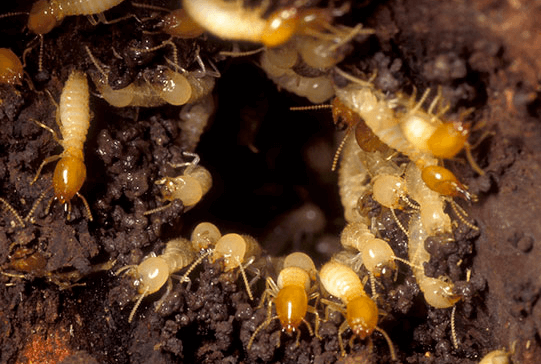Termites. Those dreaded, tiny little creatures that can literally chew your house out from under you without even the slightest hint that they are there. Causing billions of dollars’ worth of damage and destruction each year, termites are difficult to see with the untrained eye but their colonies are alive and active in Houston. In fact, three different types of termites call Houston home: Subterranean termites, Formosan termites and Drywood termites.
As a property owner or manager, engaging a professional to perform a termite inspection is wise. This is particularly true if you have noted some of the warning signs of a termite infestation including mud tubes, evidence of damage and sources of moisture. But whether or not you have seen evidence of termites, a termite inspection for residential or commercial properties should perform at least once a year or as frequently as every quarter.
What to Expect from a Termite Inspection
There’s really nothing you need to do to prepare for a termite inspection. The inspector will spend time walking around the inside of your house including the attic and/or crawlspace. You should also expect your pest control professional to walk around the outside of the house and throughout the yard, as well as checking any outbuildings. During the walk-through, your termite pest control professional may point out areas in your property that might be at risk of attracting termites, such as wet wood or dead wood.
Termite inspectors will be looking for:
- Mud tubes. These indicate subterranean termites and are found along the foundation of the house, in the crawlspace, in the attic, or near your pipes. These are the access points termites use to get into your home and travel about without getting noticed or dehydrated.
- Mud in construction joints. Termites like to seal their building gaps with dirt to stay comfortable. Crusty dirt in cracks or holes in your concrete or sheetrock may indicate the presence of termites.
- Wood on your property. Inspectors will go diligently look at wooden fences, deadwood limbs or branches, firewood, or other wooden structures that may be an invitation for termites to enter your property. They’ll check for dampness, which is attractive to termites, or indications that termites have been damaging your wood from the inside out. Hollow sounding beams might be an indication of termite damage.
- Swarmer evidence. When termite colonies migrate to create their own nests, they sometimes leave a few winged adults (swarmers) behind. Inspectors will look near window sills or door frames as winged termites are often looking for a way out.
- Termite movement. Although not typically able to be seen with the naked eye because they work from the inside out, termite movement may be detected with special professional tools.
What to Do If You Have Termites
If your termite inspection does reveal that you have a termite problem, you will be glad that the problem was discovered sooner rather than later. Several termite extermination options are available and you can make an educated decision with the help of your pest control expert to decide on a termite treatment.
Read More: Do I Need a Termite Inspection When Buying a Houston Home?
A pest control professional should offer you a flexible approach, based on your individual circumstances including the type of termite you have and the scope of the infestation. Effective termite treatment may include a liquid termiticide which will spread through the colony resulting in full termite extermination.
While discovering that you have a termite infestation is never fun, finding out about it as soon as possible is your best defense against major damage to your residential or commercial property. Schedule a professional termite inspection regularly, offering you peace of mind if you don’t have termites, and an early solution if you do.



